Early 2020 conference

Breastfeeding 2020:
Focus • Confidence • Skills
Online: March - June, 2020
Our 16th online breastfeeding conference
Breastfeeding 2020: Focus • Confidence • Skills , our 16th online breastfeeding conference in English covered a wide range of topics to inform and guide your clinical practice and to inspire and challenge your thinking about breastfeeding, nutrition and human lactation.

The road to breastfeeding success through understanding infant cues and how they relate to parent/infant synchrony
Andrea Herron, RN, MN, CPNP, IBCLC - Read moreThe road to breastfeeding success through understanding infant cues and how they relate to parent/infant synchrony
Andrea Herron, RN, MN, CPNP, IBCLC
Andrea Herron, is one of the first and longest continuous certified pediatric nurse practitioners in the United States. After more than 40 years working with breastfeeding mothers and their babies and teaching parenting classes, she is among one of the most experienced consultant in the field of lactation. Regardless of the issue or concern, Andrea has guided thousands of mothers to meet their breastfeeding and early parenting goals through support groups, lactation consultations, and childrearing education. After receiving a Master’s in nursing from UCLA, Andrea became an early pioneer in the back-to-breastfeeding movement, and educated health professionals as an instructor in the UCLA lactation educator course all over the United States. Her private lactation practice, Growing with Baby in San Luis Obispo, California, was used as the national model for private practices by Women Infant and Children (WIC), the federally funded health and nutrition program. One of her favorite and most popular topics she teaches through her Growing with Baby parenting groups is, Understanding your Infant’s Temperament. This topic and many of the other topics she teaches are includes in her newly released book, Suckle, Sleep, Thrive: Breastfeeding Success Through Understanding Your Baby’s Cues, co-written with Lisa Rizzo.
Andrea has been married to Larry Herron, a orthopedic spine surgeon, for over 35 years. They are the proud parents of a grown son, two Labradors, a cat, and parrot. The couple reside in Shell Beach, California.
The road to breastfeeding success through understanding infant cues and how they relate to parent/infant synchrony
During early breastfeeding it is critical that parents learn how to respond to and meet the individual infant’s needs. Compared to other mammals, the human newborn has a larger and more adaptable brain (head). The infant is particularly immature and dependent on appropriate, responsive caregiving, and its environment for optimum development, emotional regulation, survival, and safety. Successful breastfeeding, parent and infant self esteem, and healthy extrauterine adaptation are dependent upon the caregiver’s understanding of infant signals (cues) and contingent appropriate responses as the baby matures. This webinar, through Powerpoint lecture, video, and case studies, focuses on understanding:
(1) Newborn abilities and senses;
(2) How parents can identify and understand the infant’s communication and unique abilities (Baby Watching Techniques); (3) Infant states of awareness; and lastly,
(4) In depth illustrations of infant cues and their interpretation. Throughout, emphasis will be on the content’s relationship to successful breastfeeding.

Shifting from silos toward a breastfeeding collaborative community: building and sustaining a cohesive community-centred system
Jennifer Day, CLE, CLS, IBCLC - Read moreShifting from silos toward a breastfeeding collaborative community: building and sustaining a cohesive community-centred system
Jennifer Day, CLE, CLS, IBCLC
International Board Certified Lactation Consultant, Founder and Owner of Feed the Babes, LLC offers in home and clinic‐based, skilled breastfeeding support services. Jennifer also serves as a Michigan Breastfeeding Network (MIBFN) Project Manager and as Co‐Founder of the Southeast Michigan IBCLC’s of Color. The married mother of two happy, healthy, breastfed children has committed herself toward decreasing disparity gaps in breastfeeding by educating the public, using her voice and platforms, serving her community and, by offering Pathway 3 IBCLC Mentorship for aspiring IBCLC’s, equipping and empowering future trailblazers to change the world. She is a dual Canadian and American citizen, leader, public speaker, consultant, clinician, advocate, and educator. She, her husband and two children reside in the Metro‐Detroit area.
Shifting from silos toward a breastfeeding collaborative community: building and sustaining a cohesive community-centred system
What does community mean to you? In this talk we will discuss how those in the community can more effectively encamp a circle of support around families. When providers take the burden off families and instead take it upon themselves to collaborate, while creating a circle of support around families, it results in real COMMUNITY support. Clients should have access to a full spectrum of providers working collaboratively to build equitable programming and practices that center the needs of clients. Using our power and privilege to influence and disrupt status quo in community‐leader driven systems impacting clients, while acknowledging our own implicit and oftentimes explicit biases are essential for transformational outcomes in communities.

Moving on from tongue tie focused lactation
Nicola O’Byrne, RGN, RCN, IBCLC - Read moreMoving on from tongue tie focused lactation
Nicola O’Byrne, RGN, RCN, IBCLC
Nicola O’Byrne is an IBCLC since 2005 in Dublin, Ireland. After qualifying as a general and paediatric nurse in 1990, she worked as in Cardiology and Intensive Care in the main children’s hospital in Dublin. Her primary love has always been babies and after completing her NICU training she then worked in a level 3B NICU. Nicola took the giant leap into private practice in late 2005 and started teaching classes and providing lactation care for mothers and babies in both clinic and home settings. She also loves teaching and runs seminars for professionals and voluntary breastfeeding groups.
Nicola was involved in the start up of a frenotomy clinic and used to work there as a part-time IBCLC. She has been a Past President of the Association of Lactation Consultants in Ireland and also as the Irish ILCA partners representative. She is the proud mother of 5 breastfed children and lives with her husband and children in Dublin.
Moving on from tongue tie focused lactation
This presentation will explore current developments around treatment of tongue tie. Have we gone too far? Nicola will update iLactation participants on her current practices and referral rates for tongue tie division.

Communicating breastfeeding support
Elaine Burns, RM, RN, MCN, PhD - Read moreCommunicating breastfeeding support
Elaine Burns, RM, RN, MCN, PhD
Dr Elaine Burns is a Registered Midwife and Senior Lecturer at Western Sydney University and Chair of the NSW Branch of the Australian College of Midwives. Elaine has worked in the area of midwifery and women’s health for more than two decades and has an established track record as clinician, educator and researcher. Her current research interests focus around midwifery practice during the early postnatal period and peer and professional breastfeeding communication. Elaine is passionate about improving support for women who are breastfeeding and during the early transition to mothering.
Communicating breastfeeding support
The language and practices of health professionals can impact upon how a woman feels about breastfeeding and her breastfeeding baby. This presentation will report on projects that have included the observation of interactions between breastfeeding women and midwives, and/or lactation consultants and/or trained breastfeeding peer supporters. Exemplars of best practice for health professionals, and peer supporters, who provide breastfeeding support during the early establishment of breastfeeding, will be provided.
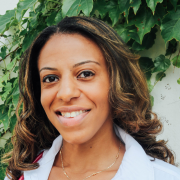
Barriers to exclusive breastfeeding in African American women
Nastassia Davis, DNP, RN, IBCLC - Read moreBarriers to exclusive breastfeeding in African American women
Nastassia Davis, DNP, RN, IBCLC
Dr Nastassia Davis is a licensed registered nurse with over 14 years experience in perinatal nursing. To compliment her nursing background, she became an International Board Certified Lactation Consultant in 2009. Most recently, Nastassia was appointed to assistant professor of nursing at Montclair State University. Over her career Nastassia developed a passion for eliminating disparities in black infant and maternal health. In 2018 she went on to found a nonprofit, the Perinatal Health Equity Foundation where she serves as the executive director. She is active in several committees and organizations including the Association of Women’s Health Obstetrics and Neonatal Nursing and the Black Mamas Matter Alliance. Nastassia’s research and clinical interests include implicit bias/racism in healthcare, breastfeeding in the black community, obstetrical violence, high risk OB, and reproductive justice.
Barriers to exclusive breastfeeding in African American women
This is a presentation of original qualitative research focused on the barriers to exclusive breastfeeding for black women residing in New Jersey. It explores the lived experiences of black women as they attempt to navigate successful breastfeeding during their hospital stay and post discharge.
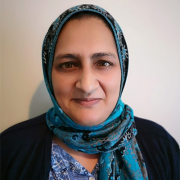
Breastfeeding in the context of HIV
Rahmat Bagus, MBChB - Read moreBreastfeeding in the context of HIV
Rahmat Bagus, MBChB
Dr Rahmat Bagu qualified with a MBChB at the University of Cape Town in 1996. This was followed by her internship in Port Elizabeth, and 2 years at community centres. She worked as a senior medical officer in Medical Outpatients and emergencies at Red Cross Children’s Hospital, from 1999-2006 (full time) and 2007-2010 (part-time).
In 2007 she started her own private practice focusing on paediatric primary care in Parow, Cape Town, after the birth of her 2nd child. Rahmat has 4 children, ages 16, 13, 9 and 5. The last 3 had beautiful home birthsand all were breastfed.
Rahmat has been involved with Le Leche League South Africa for the last 10 years, and has been a leader for 5 years. She runs regular groups in her community, and has a particular focus on working mothers as they are a much neglected group in the bigger South African context.
She has been involved in the medical management of breastfeeding mothers and babies over the last ten years, seeing many of the more complex breastfeeding challenges such as mothers with low milk supply, previous breast surgery, relactation, thrush, breast abscesses; babies with oral restrictions, etc.
Breastfeeding in the context of HIV
This talk is on breastfeeding in the context of HIV and includes basic HIV transmission information, a brief history of HIV, breastfeeding challenges in South Africa, changes to the mother-to-child-prevention programme in 2019, and lactation specific information.
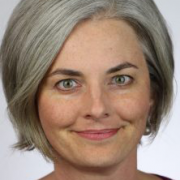
Breastfeeding research: new frontiers
Jennifer Yourkavitch, MPH, PhD, IBCLC - Read moreBreastfeeding research: new frontiers
Jennifer Yourkavitch, MPH, PhD, IBCLC
Dr Jennifer Yourkavitch is a reproductive, perinatal, and pediatric epidemiologist and lactation consultant whose research and applied work documents and addresses social and structural determinants of health, particularly in relation to lactation and breastfeeding practices, maternal and child health, HIV/AIDS, malaria and other infectious diseases, gender, equity, health systems and service delivery, in the U.S. and globally. For more than 20 years she has designed, implemented, monitored and evaluated public health programs. Jennifer has authored many articles and technical publications on global health issues, including health and nutrition equity in low- and middle-income countries, and several quantitative and qualitative studies on reproductive health, including women’s experiences with lactation and social and environmental influences on breastfeeding. Jennifer is a Research Scientist in the Center for Women’s Health and Wellness at the University of North Carolina, Greensboro and also holds an adjunct position in the Maternal and Child Health Department in the Gillings School of Global Public Health at the University of North Carolina, Chapel Hill, North Carolina, USA.
Breastfeeding research: new frontiers
Dr Jennifer Yourkavitch will discuss ways to advance breastfeeding research methods to create a more robust body of evidence, including research design, description and documentation, and analysis.
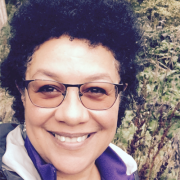
Mother's capacity in managing breastfeeding and other work in Tanzania and India
Amal Omer-Salim, Nutritionist, PhD - Read moreMother's capacity in managing breastfeeding and other work in Tanzania and India
Amal Omer-Salim, Nutritionist, PhD
Dr Amal Omer-Salim is the Executive Director of the World Alliance for Breastfeeding Action (WABA). She is a nutritionist with a PhD from Uppsala University, Sweden. Her areas of expertise are nutrition, breastfeeding, international health, gender, programme planning, research, and advocacy, with a particular focus on Africa and Asia.
Mother’s capacity in managing breastfeeding and other work in Tanzania and India
Combining breastfeeding and other forms of work is desirable from both public health and labour productivity perspectives. This presentation describes a mother’s capacity to manage breastfeeding and other work using case studies from Tanzania and India. Conceptual frameworks and implications for health, social and community services around the world are also discussed.
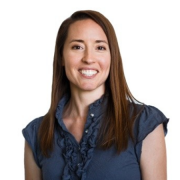
Supporting nursing mothers in the workplace
Kjirsten Tokushima, SPHR - Read moreSupporting nursing mothers in the workplace
Kjirsten Tokushima, SPHR
Kjirsten Tokushima is a Certified Senior Professional of Human Resources with over 14 years of experience specializing in the areas of legal compliance, employee relations, workplace accommodations and leaves of absence. She currently works at Qualcomm Incorporated and as an advocate for supporting breastfeeding and pumping in the workplace, she participates on the board of milQ, Qualcomm’s on-site breastfeeding support group. Kjirsten is a mother of four and has experienced life in the trenches of working while breastfeeding all four of her children.
Supporting nursing mothers in the workplace
Catch a glimpse of what nursing mothers might experience while trying to pump at work. Understand the general business case for supporting breastfeeding in the workplace, what employers should consider providing in and as a pumping space for lactating employees and other considerations employers can make to remove barriers for women who want to breastfeed their children while pursuing their careers or trying to provide for their families.
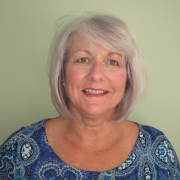
Not sorry mums: a breastfeeding public information campaign
Janet Calvert, RM, MSc - Read moreNot sorry mums: a breastfeeding public information campaign
Janet Calvert, RM, MSc
Janet Calvert has previously worked as a midwife and then as a breastfeeding clinical specialist in the maternity setting. In 2002 she was appointed Breastfeeding Coordinator for Northern Ireland; she is currently employed by the Public Health Agency NI within Health Improvement Division. Her current role involves commissioning public health initiatives in the areas of workplace health and breastfeeding. Janet is the nominated Strategic Lead for implementation of the Breastfeeding Strategy for Northern Ireland. She also works with the UNICEF UK Baby Friendly Initiative (BFI) to support best practice within health and social care settings and sits on the UNICEF UK BFI Designation Committee.
Not sorry mums: a breastfeeding public information campaign
Qualitative research commissioned by Public Health Agency (PHA) in 2016 found that many women were not comfortable with breastfeeding in public and even in front of members of their extended family. In response PHA started work in 2017 with Genesis advertising agency to develop a distinctive public information campaign. The 2018 #NotSorryMums campaign encouraged and empowered new mothers to breastfeed in public and to reframe public breastfeeding as a deeply protective act that deserves support from the entire community.
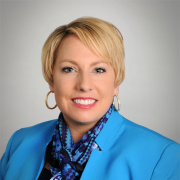
Lactation support for non-traditional care
Dixie Weber, MSN, BSN, RN - Read moreLactation support for non-traditional care
Dixie Weber, MSN, BSN, RN
Dixie Weber is the National Director of Healthcare Programs for Family to Family Support Network, a non-profit based in Denver, USA. She is an expert in best practices in the care of Unique Perinatal Populations, including women making an adoption plan, families growing through surrogacy arrangements, the pregnant incarcerated population, women giving birth after a sexual assault or domestic violence, and social complex families. Dixie has established expectations for healthcare in the delivery of comprehensive and high-quality medical care for these complex patients. She has developed numerous innovative programs and has spoken across the country on topics including Generational Workforce Management, Neutral Compassionate Care Models, Adoption and Surrogacy, Bioethics, and Leadership Development. For the past 20 years, Dixie has specialized in Maternal-Child Healthcare and has held numerous leadership and programmatic positions within the specialty. Dixie holds a master’s degree in Healthcare Management, as well as a post-graduate certificate in Adult Learning Theory.
Lactation support for non-traditional care
Pregnancy is complex. This discussion will highlight the unique needs of many underserved and under-supported populations, including pregnant women struggling with substance use disorder, women who are incarcerated during pregnancy, and families who are growing through surrogacy and adoption after grappling with infertility. In each situation, there is an infant(s) who requires a comprehensive feeding plan. The support of a knowledgeable healthcare team utilizing the concepts of neutral, compassionate care is imperative to a successful outcome for these families.

How Black Creek CHC set out to address food insecurity and the role of the IBCLC: a staff orientation to breastmilk substitutes
Shannon Mclennon, IBCLC - Read moreHow Black Creek CHC set out to address food insecurity and the role of the IBCLC: a staff orientation to breastmilk substitutes
Shannon Mclennon, IBCLC
Shannon Mclennon is a practicing IBCLC in Toronto, living in Hamilton, ON, Canada. It was her role as a breastfeeding mother that ignited her passion for breastfeeding families and advocacy. After 18 years as a LLL Leader, she retired last year. She has been an IBCLC for 10 years and employed at Black Creek Community Health Centre as a Non-RN Lactation Consultant since 2011. Before this, she operated a small birthing business as a Certified Doula and Educator.
Her role as a community lactation consultant is multi-faceted and collaborative. It addresses Social Determinants of Health through monthly support groups, food security programs, training breastfeeding support peers along with her clinical role. Shannon enjoys oil crafting, painting and travelling.
How Black Creek Community Health Centre set out to address food insecurity and the role of the IBCLC: a staff orientation to breastmilk substitutes
This presentation will describe how breastfeeding supports and the needs of non-breastfed infants were built into a food security initiative in a community health centre, based in a low-resource neighbourhood in Toronto, Canada.
Participants will hear a detailed account of the development The Food Access Committee, the initiatives used to bridge the gap of food insecurity and how the IBCLC contributed as a member of the inter-professional team, providing the information staff needed to support the needs of non-breastfeeding families as well as protecting breastfeeding as non-experts.

Neonatal hypoglycemia: navigating through elusive thresholds in search of sensible management practices and optimal neurodevelopmental outcomes
Alberto Heart, MD - Read moreNeonatal hypoglycemia: navigating through elusive thresholds in search of sensible management practices and optimal neurodevelopmental outcomes
Alberto Heart, MD
Dr Alberto Heart works as pediatrician and neonatologist in Panama. He is a proud member of APILAM (Association for the promotion and investigation of cultural and scientific aspects of human lactation) and an active collaborator of www.e-lactancia.org, one of the largest evidence based databases and search engines of medical interventions, medications and treatments and their interactions with breastfeeding.
Dr Heart is a renowned lecturer regarding the topics of humanization of birth, respected care of the newborn baby, lactation, neurobiology of attachment and birth and child development and regulation.
He has worked together with the Panamanian branch of La Leche League in the education and promotion of breastfeeding in Panama and was chosen as “Ambassador of breastfeeding” for his work. Dr Heart is also an activist who, together with his wife (Dr Karla Camacho MD, PhD, OBGYN) has been promoting legal changes regarding the topics of humanization of birth and lactation education and promotion in his country. He is also a proud husband and father of two lovely children.
Neonatal hypoglycemia: navigating through elusive thresholds in search of sensible management practices and optimal neurodevelopmental outcomes
Neonatal hypoglycemia is the most common metabolic problem in newborn infants and a readily preventable cause of brain injury in infancy. Clinical thresholds and treatment are widely debated and currently there is no universally accepted safe blood glucose concentration for newborns.
In this lecture we will explore some of the physiological conditions in the newborn that explain why there is so much confusion regarding the current thresholds and management of this condition and which patients are candidates for screening. We will go through the consequences generated from over screening and over treating this condition. Also, we will look into the results of studies generated from new technologies like continuous blood glucose monitoring and what has been the impact of the use of some of these proposed thresholds on neurodevelopmental outcomes later in childhood

The alchemy of connection
Indira Lopez-Bassols, BA(Hons), MSc, IBCLC - Read moreThe alchemy of connection
Indira Lopez-Bassols, BA (hons), MSc, IBCLC
Indira Lopez-Bassols is originally from Mexico, now lives in the United Kingdom, and has been supporting breastfeeding dyads for more than a decade. As a clinician IBCLC, she is in charge of a weekly Specialist Breastfeeding Clinic for complex breastfeeding dyads as part of the Central London Community Healthcare Trust (National Health Service), and also works in private practice. As an educator, she has been training the next generations of IBCLCs in the United Kingdom as the founder, director and lead lecturer of the Breastfeeding London Course, accredited by the Royal College of Midwifery. As a La Leche League (LLL) leader, she serves Café la Leche Merton in her local community.
The alchemy of connection
This presentation argues that every encounter in lactation care should aim to set the ground for an emerging human connection between the lactation consultant and the breastfeeding mother. Cultivating connection is as important as adequate clinical competencies and effective communication skills.

The NICU Waltz! Balancing breast and bottle feeding for successful discharge. How IBCLCs and SLPs dance together
Ramya Kumar, MS, CCC-SLP, BCS-S, CNT, CBS, NTMTC and Andrea Mauk, BSN, RN, IBCLC - Read moreThe NICU Waltz! Balancing breast and bottle feeding for successful discharge. How IBCLCs and SLPs dance together
Ramya Kumar, MS, CCC-SLP, BCS-S, CNT, CBS, NTMTC
Ramya Kumar is a certified Speech Language Pathologist specializing in infant and pediatric feeding difficulties.
She currently works in a Level III NICU and a local pediatrician’s office, in Arizona, USA. Ramya is a Board Certified Specialist in Swallowing and Swallowing Disorders (BCS-S) and a Certified Neonatal Therapist (CNT). In addition, she has received the Developmental Care Specialist Designation through the National Association of Neonatal Nurses and is also certified in Neonatal Touch and Massage (NTMTC). She is currently pursuing the IBCLC designation.
Ramya is passionate about creating long term developmental and mealtime successes for her patients and families. Her philosophy to patient care is deeply rooted in the belief that every patient – no matter how small, has a voice; and that families should be empowered to be active participants in their care plan.
When she isn’t at a conference or reading another article, Ramya learns and performs Indian classical dance and enjoys downtime with her husband and furry kid. She is honored to be part of this conference.
Andrea Mauk, BSN, RN, IBCLC
Andrea Mauk has been a RN for over 20 years since graduating in 1997, from Northern Arizona University with BSN, Sigma Theta Tau. Andrea started her career as a bedside nurse in a 60 bed, Level III NICU in Phoenix, AZ. While working at the bedside, she became a grief support counselor through Angels Found to honor and support families through the first year of their loss. Receiving her IBCLC in 2005, Andrea continued to remain in the hospital setting as a bedside RN-Lactation Consultant in a Level III NICU and Couplet Care. Andrea specializes in NICU lactation; she has co-chaired the multi-disciplinary committee to create policy to bring pasteurized human donor milk, PHDM, into Banner Health NICUs and has assisted in development of computerized PHDM Tracking Tool. Andrea has been published in local newspapers under the “Ask the Expert” section and on FOX Morning News Show to promote breastfeeding awareness and education. Clinically, she practices empathetic holistic family-centered nursing care as the foundation for all her interactions with patients and their families. Andrea believes in a multi-disciplinary team approach to support neonatal breastfeeding and the prevention of oral aversion in babies during their hospital stay and beyond. Andrea spends her free time with her two creative teenage sons and their goofy Goldendoodle, Lunie.
The NICU Waltz! Balancing breast and bottle feeding for successful discharge. How IBCLCs and SLPs dance together
The purpose of this presentation is to enable participants to understand ways for IBCLCs and Speech Language Pathologists to collaborate in the NICU, and use neonatal developmental principles to seamlessly integrate breast and bottle feeding for medically fragile infants.
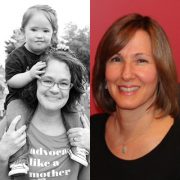
Breastfeeding and Down syndrome: facilitating positive outcomes
Ella Gray Cullen, RN, CLC and Jill Rabin, MS, CCC-SLP/L, IBCLC - Read moreBreastfeeding and Down syndrome: facilitating positive outcomes
Ella Gray Cullen, RN, CLC
Ella Gray Cullen is a registered nurse, certified lactation counselor, and a trained doula. She is the mother of a daughter with Down syndrome and the founder and executive director of Julia’s Way, a 501(c)(3), nonprofit organization dedicated to re-imagining life with Down syndrome. She developed her passion for helping women breastfeed while working as a nurse internationally with Doctors Without Borders. She now brings that experience and passion to supporting and encouraging women who want to breastfeed their babies with Down syndrome. She is also the editor of the book, Breastfeeding and Down Syndrome: A Comprehensive Guide for Mothers and Medical Professionals.
Jill Rabin, MS, CCC-SLP/L, IBCLC
Jill Rabin is a pediatric speech pathologist and international board certified lactation consultant who has been working primarily with the 0 to 3 year old population for 33 years. She is based in the Chicagoland area where she has a private practice working with young babies and their families with feeding and speech/language issues. Her areas of specialty include facilitating breastfeeding in at-risk populations such as preterm infants and babies with Down syndrome, using modified baby-led weaning to transition babies with special needs to solids and using child-directed feeding approaches to improve feeding skills in infants and babies with feeding aversion. She contributed two chapters to the book Breastfeeding and Down syndrome and has written three posts about breastfeeding and Down syndrome on the Julia’ s Way website. She also wrote an essay and was quoted in the tenth anniversary edition of Gill Rapley and Tracey Murkett’s Baby-Led Weaning book.
Breastfeeding and Down syndrome: facilitating positive outcomes
Mothers of babies with Down syndrome are often discouraged from breastfeeding by the medical community due to misinformation. However, with the right management and education many, if not most, babies with Down syndrome are able to make a successful transition to breastfeeding. Our presentation focuses on how to facilitate that transition and how Julia’ s Way, a non-profit organization, is helping encourages and inspire families to be more successful in that quest.

Clinical reflections on tongue tie referrals and management
Yvonne LeFort, MD, FRNZCGP, FABM, IBCLC - Read moreClinical reflections on tongue tie referrals and management
Yvonne LeFort, MD, FRNZCGP, FABM, IBCLC
Dr Yvonne LeFort is a family physician based in Auckland New Zealand. She is a graduate of Dalhousie Medical School and University of Calgary Family Medicine in Canada. She’s been a Fellow of the Academy of Breastfeeding Medicine since 2012.
Dr LeFort has been involved in Breastfeeding Medicine for over 20 years. Her specific interest in tongue tie and its management was nurtured through her clinical association with Dr Evelyn Jain the founder of Lakeview Breastfeeding Clinic in Calgary, Canada. She has established a private Breastfeeding clinic in Auckland New Zealand providing comprehensive Breastfeeding management for mothers and their infants. The service includes treating any breastfeeding issue including the assessment and management of tongue tie.
She is currently serving as an elected Board member of the Academy of Breastfeeding Medicine and chairs the International Committee.
Clinical reflections on tongue tie referrals and management
This presentation will present the clinical experience of management of tongue-tie within a private breastfeeding clinic. It will review the referral process, the presenting symptoms along with the assessment and management of tongue tie in a clinical setting.

Blowing smoke: breastfeeding/infant feeding in wildfire country
Terry Miller, IBCLC, RLC, CLC - Read moreBlowing smoke: breastfeeding/infant feeding in wildfire country
Terry Miller, IBCLC, RLC, CLC
Terry Miller is the Senior Breastfeeding Consultant with DPHHS Montana Nutrition & Physical Activity Program, USA, working to promote and support best practices in breastfeeding and infant nutrition across the state. Terry’s focus areas include expanding Baby-Friendly designated hospitals across Montana and increasing rural access to lactation support through the Rural Montana Breastfeeding Support Initiative. As Lead for the Montana State Breastfeeding Coalition, Terry works to increase access and diversity to breastfeeding credentialing and has launched several sustainable and creative lactation initiatives through the MontanaBreastfeeds! Project. Terry is on the board of Eat Right Montana Action For Healthy Kids (ERM/AFHK) and member of The Montana Cancer Coalition – Nutrition &Physical Activity sub-committee (MTCC).
Blowing smoke: breastfeeding/infant feeding in wildfire country
Wildfire trends across the world are escalating. Higher temperatures, smaller snow packs, longer droughts and warm seasons are increasing wildfire occurrences and we are only beginning to understand the deeper health impacts on wildfire affected communities. This wildfire smoke & breastfeeding presentation aims to highlight wildfire trends, wildfire smoke dispersion and particulate inhalation and its impact on the breastfeeding dyad. In addition, this session will highlight current recommendations for breastfeeding/infant feeding in wildfire affected communities.
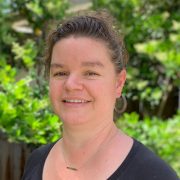
Simplifying lactation care in the first 100 hours
Christine Staricka, BS, IBCLC, RLC, CCE - Read moreSimplifying lactation care in the first 100 hours
Christine Staricka, BS, IBCLC, RLC, CCE
Christine Staricka is a Registered, International Board-Certified Lactation Consultant and Certified Childbirth Educator. Christine worked as a hospital-based IBCLC for 10 years and has over 19 years’ experience providing breastfeeding support and clinical lactation care. She is the Facilitator/Director of Baby Cafe© Bakersfield and provides clinical care in that setting. She teaches professional lactation education courses to aspiring and current lactation care providers, including through an educational membership group called The Lactation Training Lab. Christine developed The First 100 Hours© concept, a lactation assessment strategy designed to help lactation care providers organize their assessments and consultations in the simplest way.
Christine is currently serving as the President of the United States Lactation Consultant Association (USLCA). She holds a Bachelor’s Degree in Business Management from the University of Phoenix. She has been married for 26 years, lives in California, USA, and is the proud mother of 3 amazing daughters
Simplifying lactation care in the first 100 hours
Let’s look at early lactation care through a new lens: when we are providing lactation care in the earliest days after birth, it can become complicated and challenging. In this presentation we will take a look through the lens of what is most important during the first 100 hours of a baby’s life, illuminating the critical behaviors and techniques that can set new parents up for success at meeting their own infant feeding goals while protecting the health of both parent and infant. This step-by-step plan will help you as a provider to feel organized and confident that you have met the needs of the new family during this brief but brilliant time of their lives.


